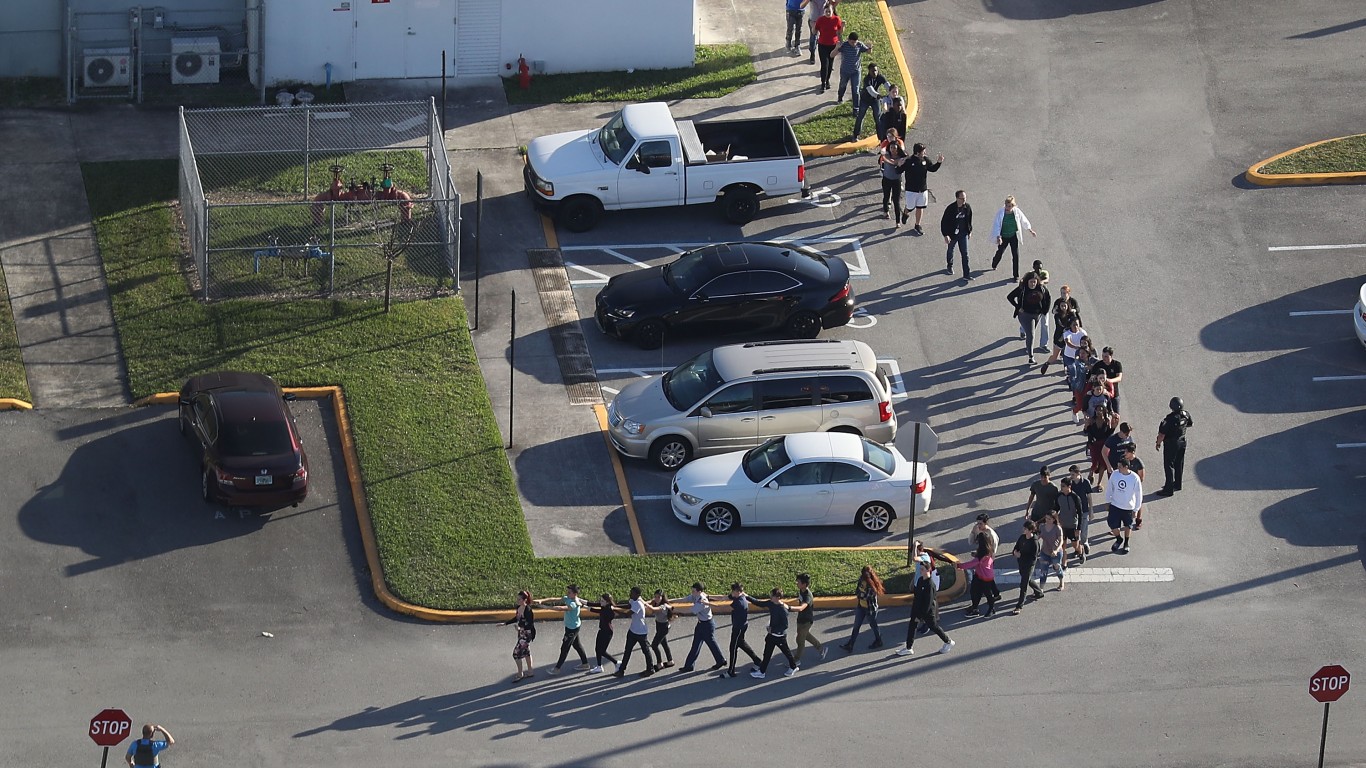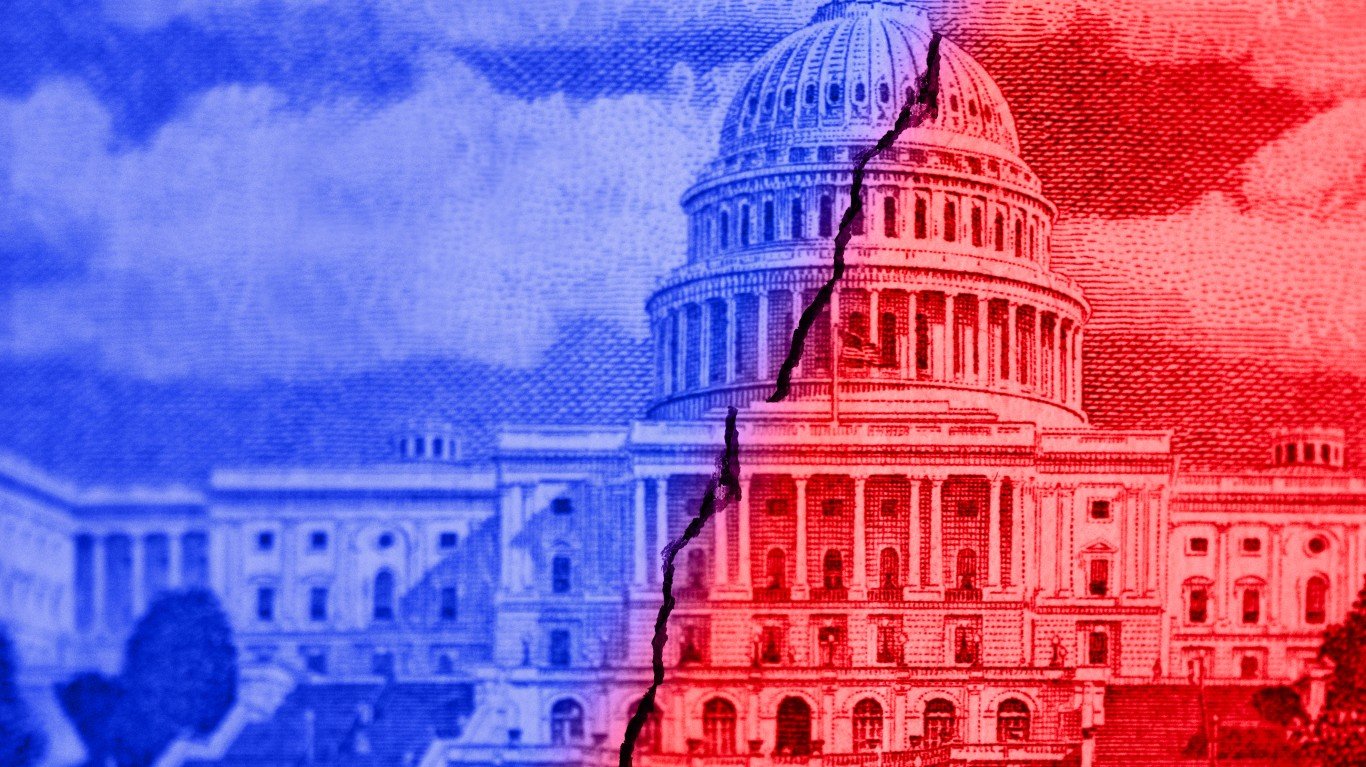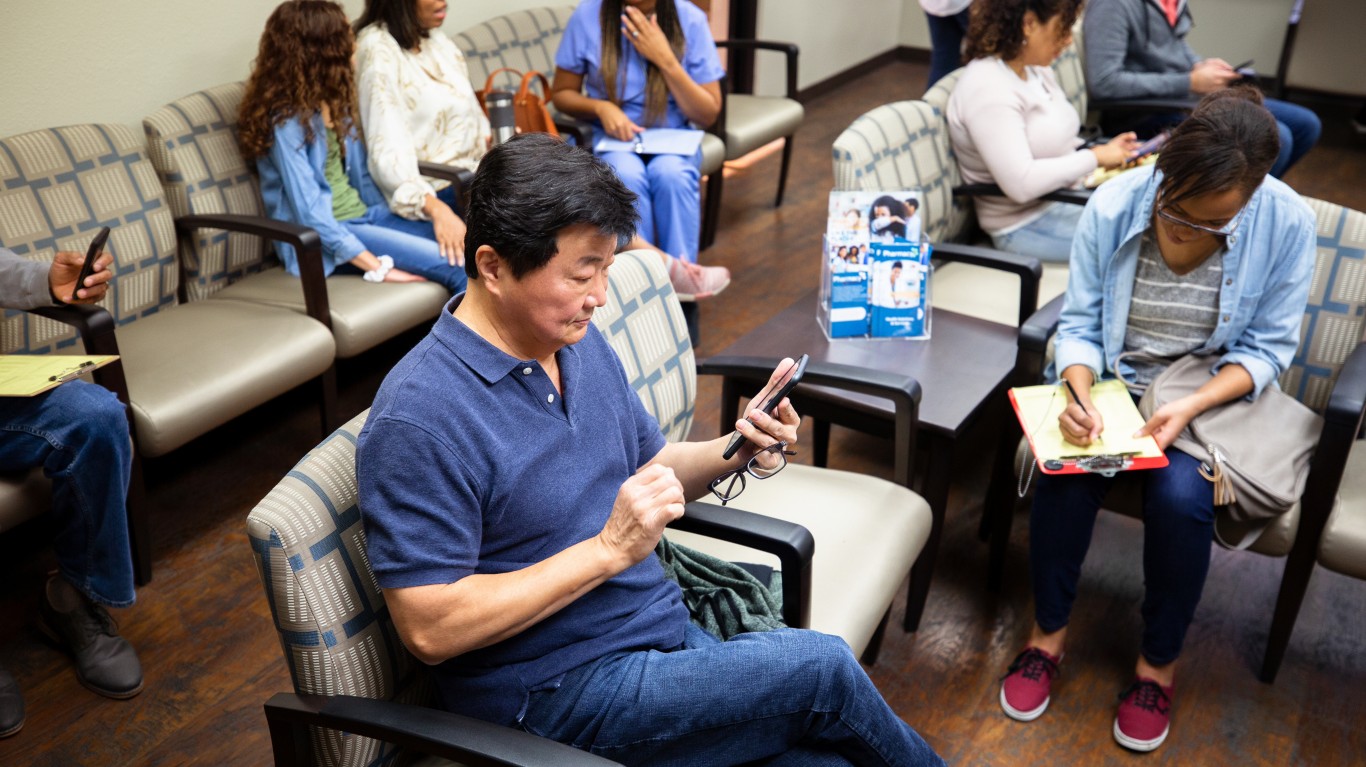
6. Violent crime
> American adults who see issue as a “very big problem”: 59% of those surveyed
> Likely Democratic voters who see issue as a “very big problem”: 52% of those surveyed (7th highest of 16 issues in survey – tied)
> Likely Republican voters who see issue as a “very big problem”: 64% of those surveyed (5th highest of 16 issues in survey – tied)
The U.S. violent crime rate has inched up in recent years. Still, it remains far lower than the highs reported in the 1990s and first decade of the 2000s. Currently, violent crime is seen as a major problem for 59% of the adult population – though Republicans are more likely to identify it as a serious issue than their Democratic counterparts.

5. Gun violence
> American adults who see issue as a “very big problem”: 60% of those surveyed
> Likely Democratic voters who see issue as a “very big problem”: 81% of those surveyed (the highest of 16 issues in survey)
> Likely Republican voters who see issue as a “very big problem”: 38% of those surveyed (10th highest of 16 issues in survey)
Few political issues are more politically divisive than gun violence and what to do about it. Gun violence is the single most important issue for Democratic voters, with 81% of the cohort identifying it as a very big problem. Meanwhile, only 38% of Republican voters say that gun violence is a very big problem.

4. Drug addiction
> American adults who see issue as a “very big problem”: 61% of those surveyed
> Likely Democratic voters who see issue as a “very big problem”: 56% of those surveyed (5th highest of 16 issues in survey)
> Likely Republican voters who see issue as a “very big problem”: 64% of those surveyed (5th highest of 16 issues in survey – tied)
Drug addiction – particularly opioid addiction – is one of the biggest issues facing the United States, with 61% of voters identifying it as a very serious problem. The latest government data on overdoses shows the problem is rapidly getting worse. According to the Centers for Disease Control and Prevention, there were 21.4 fatal opioid overdoses for every 100,000 people in 2020, up from 6.8 per 100,000 in 2010, and 3.0 per 100,000 in 2000.
Among all the 16 issues reviewed, drug addiction has a relatively small partisan gap of just 8 percentage points.

3. The ability of Democrats and Republicans to work together
> American adults who see issue as a “very big problem”: 62% of those surveyed
> Likely Democratic voters who see issue as a “very big problem”: 62% of those surveyed (4th highest of 16 issues in survey)
> Likely Republican voters who see issue as a “very big problem”: 63% of those surveyed (7th highest of 16 issues in survey)
Partisanship is nothing new in Washington, but in recent years, it has gotten far more pronounced and damaging. Both in Washington and across the country, Republicans and Democrats have different priorities and ideas about how to solve public problems. One area they align closely on is the issue of partisanship itself. A reported 62% of Democratic voters and 63% of Republican voters see the inability of the two major parties to work together as a very big problem.

2. Health care affordability
> American adults who see issue as a “very big problem”: 64% of those surveyed
> Likely Democratic voters who see issue as a “very big problem”: 73% of those surveyed (2nd highest of 16 issues in survey)
> Likely Republican voters who see issue as a “very big problem”: 54% of those surveyed (8th highest of 16 issues in survey)
The number of Americans without health insurance has fallen considerably in recent years. Still, health care costs tend to rise faster than inflation overall, and health care affordability is the second most serious issue facing the country. Of all American adults surveyed by Pew, 64% identified health care affordability as a very big problem.
The share of Democrats who see it as a serious problem – 73% – is 19 points above the 54% of Republicans who do.





